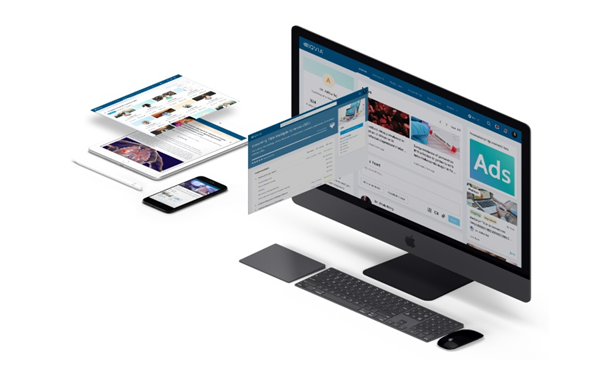

































- Locations
- Middle East & Africa
- 2021 Healthcare Predictions for Africa
2020 has been an unprecedented year for global healthcare. The impact of the COVID-19 pandemic has created a paradigm shift that has challenged the typical structure of health systems and accelerated the need for setting up an innovative ecosystem with revamped health delivery models and scaling capabilities.
In Africa, as in other regions, governments have directed vast means towards healthcare to address the health crisis and, with many countries already rolling out the first doses of COVID-19 vaccines, health budgets will go under unsustainable pressure, making the shift towards digital technology a crucial step to redefine healthcare professionals-patients relationships and support a new era of care access for the continent’s population.
In 2021, healthcare will still be in the public eye and, while some industry practices will soon return to a certain degree of normalcy, there are a few trends that are likely to dominate the healthcare and life sciences headlines.
The African population, currently in need of protection against COVID-19, will be vaccinated by the end of 2021
According to the World Health Organization’s direction for Africa, 90 million doses will initially be available for the inoculation of 3 percent of the African population most in need of protection, including health workers and other vulnerable groups in the first half of 2021.
As production capacity increases and more vaccines become available, the aim will be to vaccinate at least 20 % of Africans by providing up to 600 million doses by the end of 2021. To do so, African countries need to streamline and implement regulatory processes, cold chain systems and distribution plans to ensure vaccines are safely expedited from ports of entry to delivery.
Telemedicine foundations will be laid out for a wider use across the continent
Well before the COVID-19 crisis, telemedicine had emerged as an alternative to fill the gap of inadequate health resources and infrastructure in Africa. The current pandemic situation has accentuated this need as more than 400 million people have little or no access to healthcare today.
While a few African countries have already approved policies and guidelines for telemedicine, most nations still need to address regulation, delivery model, internet access and human resource challenges.
Governments and insurance stakeholders also need to discuss win-win reimbursement schemes that allow the democratization of telemedicine and provide lasting benefits for patients at an effective cost.
Detailing to Healthcare Professionals will be a mix of face-to-face and remote
With the prevalence of access restrictions to help fight the spread of COVID-19, all pharma and life sciences companies had shifted to remote detailing within the first few months of the pandemic itself, allowing them to continue to inform healthcare professionals during this particularly crucial period.
Today, with medical promotional activity gradually returning to normal, virtual detailing still enjoys a wide adoption among healthcare professionals (HCPs) due to the possibility of receiving information when and where it’s convenient, while simultaneously helping life sciences companies increase their capacity to confidently and compliantly engage with HCPs.
Medical/Pharma conferences and events will continue to be virtual
Medical conferences and events play an important role in the pharma industry and represent an important source for healthcare professionals to update their knowledge about new therapies and medical advances.
Practitioners of all ages and technology savviness have quickly embraced this new way of attending medical conferences and congresses. The comfort and ease of access (no applications installation is needed), an intuitive and secure navigation, a remote interaction with peers and key opinion leaders and the possibility to save and review the sessions anytime are among the numerous advantages of virtual events.
African pharmaceutical companies will prepare to produce their own APIs in the future
The lockdown of China and India, the largest producers of active pharmaceutical ingredients, resulted in a severe supply shortage of basic medicines in the continent. In order to reduce dependency and face growing medicine demand, African companies need to lay out the foundations and scale their R&D and production capabilities to expand local manufacturing.
Achieving this goal will strengthen public-private partnerships and motivate regulatory and tax incentives.
Demand for mental healthcare will significantly increase
The impact of the COVID-19 crisis has been severe on mental health. Several African countries reported an increase of up to fourfold in symptoms of depression compared to the pre-pandemic statistics.
In a recent press release, the World Health Organization stated that mental health is “one of the most neglected areas of public health.” Less than a quarter of people struggling with mental health in low and middle-income countries receive adequate treatment. With at least 75% of people struggling with mental health issues not receiving any treatment, governments are urged to rapidly scale-up this section of public health services.
Pharma will refine Patient Support Programs for a COVID-19 World
The COVID-19 pandemic has disrupted and amplified the complex factors that shape patient journeys and influence patient adherence. The clinical, financial and emotional effects of COVID-19 are leading to significant and tangible impact on patient support programs.
Some of these impacts will shape the purpose and design of patient support programs over the long term. For instance, COVID-19 has revealed the necessity for multi-channel engagement solutions, especially those that integrate with apps, wearables, and remote monitoring. It has asserted a renewed focus on intelligent design of patient-centric, risk-informed support programs and highlighted a preference for home-based nurse interventions over out-of-home infusion centers, labs, and other diagnostics.
